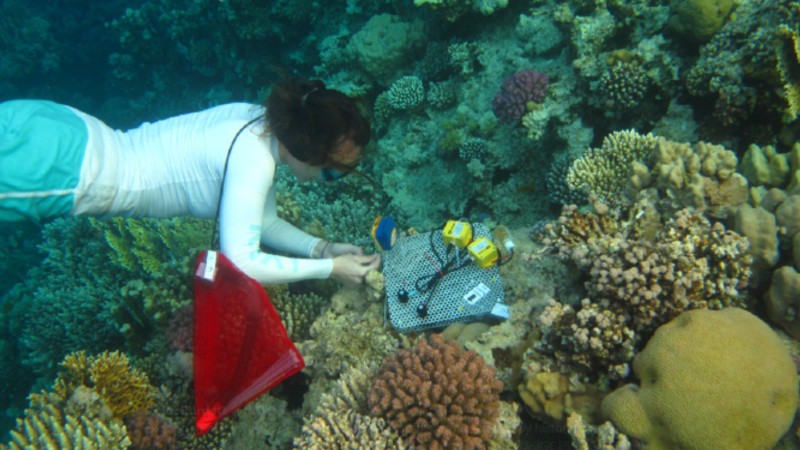Is there still hope for our endangered coral reefs?

Our coral reefs are under threat. Around the world, the long-term survival of reefs is in question because of the environmental stress that climate change is placing on them. Dr Heidi Burdett is a Research Fellow based in the Lyell Centre* where she and her team are investigating the physiology of ‘resilient reefs’.
Why are coral reefs so important?
Coral reefs comprise less than 0.25% of the marine environment, yet are home to around 25% of all the fish in the ocean. Tropical coral reefs are probably the most biodiverse ecosystems in the oceans, and support fishing industries and tourism to the value of US$36 billion a year.
What’s causing them to become endangered?
When corals are exposed to an environmental stress such as a sharp increase in temperature, the relationship corals have with the various species of microalgae that live inside their tissues can break down. These algae are expelled, leaving the coral devoid of colour and, more importantly, its food source. This is known as coral bleaching. If they don’t regain their algae quickly enough, essentially the corals starve to death.
Does your research give us hope for the future?
Yes, some corals appear to be more resilient to stress than others. Understanding how these corals are different may hold the key to better predicting how reefs will fare in the future, and perhaps even finding ways to help protect them. Corals have a long evolutionary history, and even in today’s rapidly changing climate some display a remarkable resilience to environmental stressors such as warming events. This should give us hope for their continued survival.
How do we protect the future of our coral reefs?
The greater the warming, the smaller the window of resilience. This means for the long-term survival of coral reefs, we still need to take more action to deal with climate change and limiting the extent of global warming over the next 50 to 100 years.
You can find out more about Heidi’s work and meet her colleagues during this year’s Doors Open Day event, when the Lyell Centre welcomes visitors for a day of tours, talks and hands on activities for all ages.
*The Lyell Centre is a collaboration between British Geological Survey (BGS) and Heriot-Watt University.